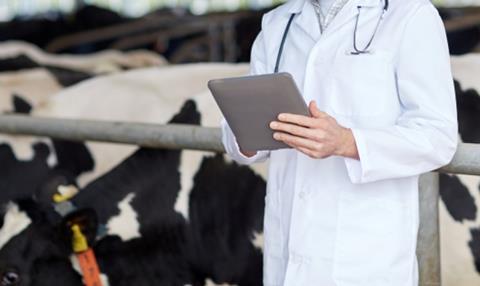Environmental body the Chartered Institute of Environmental Health (CIEH) has said that it is deeply concerned about the impact of the industrial action by Government vets in Northern Ireland on the food supply chain and public health.

The vets, who are members of the NIPSA union, are striking for five days over a pay dispute with the UK Government. They perform checks on animals and animal products entering Northern Ireland from Great Britain, as well as monitoring the operation of abattoirs and certifying some meat exports.
The strike will potentially disrupt the movement of goods and livestock across the Irish Sea border, which is subject to sanitary and phytosanitary (SPS) measures under the Protocol on Ireland/Northern Ireland. It will also affect some products that are destined for the Republic of Ireland or have an uncertain final destination.
CIEH has said that it recognises the right of the vets to take industrial action and supports their demand for fair pay and recognition. It also acknowledged the efforts of the Department of Agriculture, Environment and Rural Affairs (Daera) to mitigate the effects of the strike by prioritising staffing at poultry factories and allowing retrospective paperwork for some products.
CIEH is calling for robust measures to be taken by the Government to ensure that there will be no adverse impacts on food safety or public health resulting from this industrial action. It is concerned that the strike will exacerbate the existing shortage of official veterinarians in Northern Ireland, which has been a challenge for the implementation of the Protocol.
It is also calling for environmental health professionals to be involved in carrying out SPS checks, as they have the relevant skills and experience to do so. CIEH believes that this would help to ease the pressure on the vets and provide a more resilient and flexible workforce for the food sector.
The body said it recognised the vital role performed by vets who are essential to the food chain and trade flow. It stated that it wants to work with them in a collaborative and complementary way, as part of a multi-disciplinary team that can deliver effective and efficient SPS controls.
It is now urging the UK Government to engage with the NIPSA union and resolve the pay dispute as soon as possible, and urged both the UK and EU Governments to recognise and utilise the expertise of environmental health professionals in carrying out SPS checks, in line with international standards and best practice.
Protecting stakeholders
CIEH said it is committed to working with all stakeholders to ensure food safety and public health are protected in Northern Ireland and beyond.
Louise Hosking, executive director of environmental health at CIEH, said: "We are deeply concerned about the food safety and public health implications of the strike by Government vets in Northern Ireland. I fully support their right to fair pay and recognition, and I urge the UK Government to resolve this dispute as soon as possible.
"I also call on both the UK and EU Governments to recognise the value and expertise of environmental health professionals in carrying out SPS checks, as they have the relevant skills and experience to do so. Environmental health professionals want to proactively engage with vets and to work with them in a collaborative and complementary way, as part of a multi-disciplinary team that can deliver effective and efficient SPS controls.
"This is a crucial time for the food sector and trade flow in Northern Ireland, and we need to ensure that food safety and animal welfare standards are maintained at all times.”
This story was originally published on a previous version of the Meat Management website and so there may be some missing images and formatting issues.















